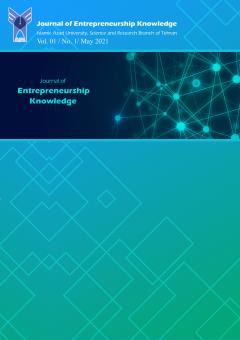Designing a digital transformation system model in the tax organization
Subject Areas : Entrepreneurshipmehrdad kalantari 1 , Jalal Hghighat monfared 2 * , Abdollah Kolobandi 3
1 - Department of Industrial Management, Central Tehran Branch, Islamic Azad University, Iran.
2 - Department of Industrial Management, Central Tehran Branch, Islamic Azad University, Iran.
3 - Department of Industrial Management, Central Tehran Branch, Islamic Azad University, Iran.
Keywords: digital transformation, tax organization, foundational data theory,
Abstract :
This qualitative research was conducted with the aim of designing a model of the digital transformation system in the tax organization and with the approach of foundational data theory. The researcher collected information with a qualitative approach and with a detailed review of the literature and the history of digital transformation, researches, articles and multiple domestic and foreign books, as well as field and targeted interviews with 18 university professors and experts of the tax organization. The researcher reached theoretical saturation in the twelfth interview and the interviews were stopped) and by using the foundational data theory and three-stage coding (open, central and selective), to analyze Qualitative data has been collected. Based on the findings of the research, the categories of intra-organizational factors and extra-organizational factors as independent variables as well as the categories; Identification, environmental requirements, development and maintenance were considered as moderator variables. This qualitative research was conducted with the aim of designing a model of the digital transformation system in the tax organization and with the approach of foundational data theory. The researcher collected information with a qualitative approach and with a detailed review of the literature and the history of digital transformation, researches, articles and multiple domestic and foreign books, as well as field and targeted interviews with 18 university professors and experts of the tax organization. The researcher reached theoretical saturation in the twelfth interview and the interviews were stopped) and by using the foundational

